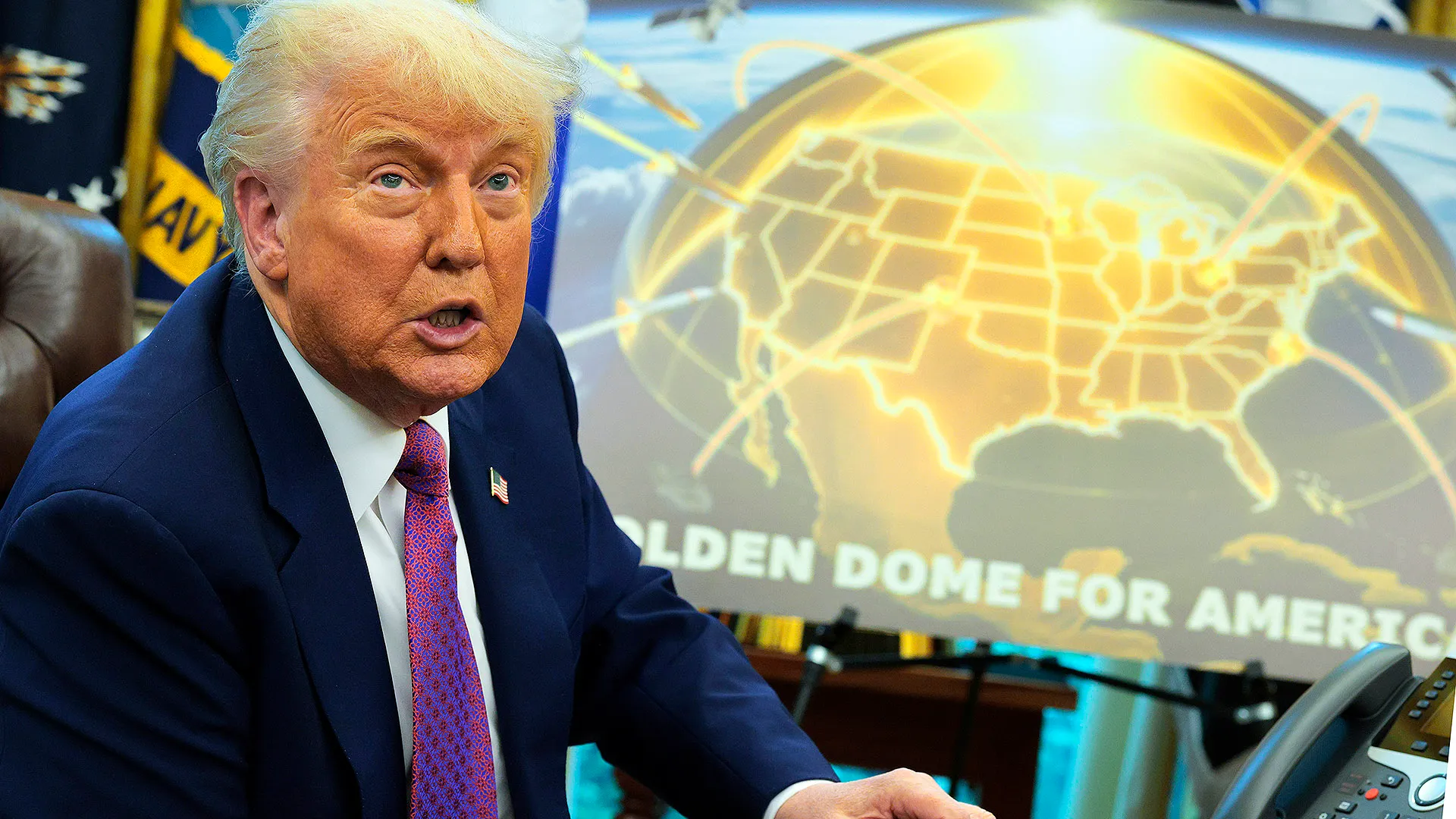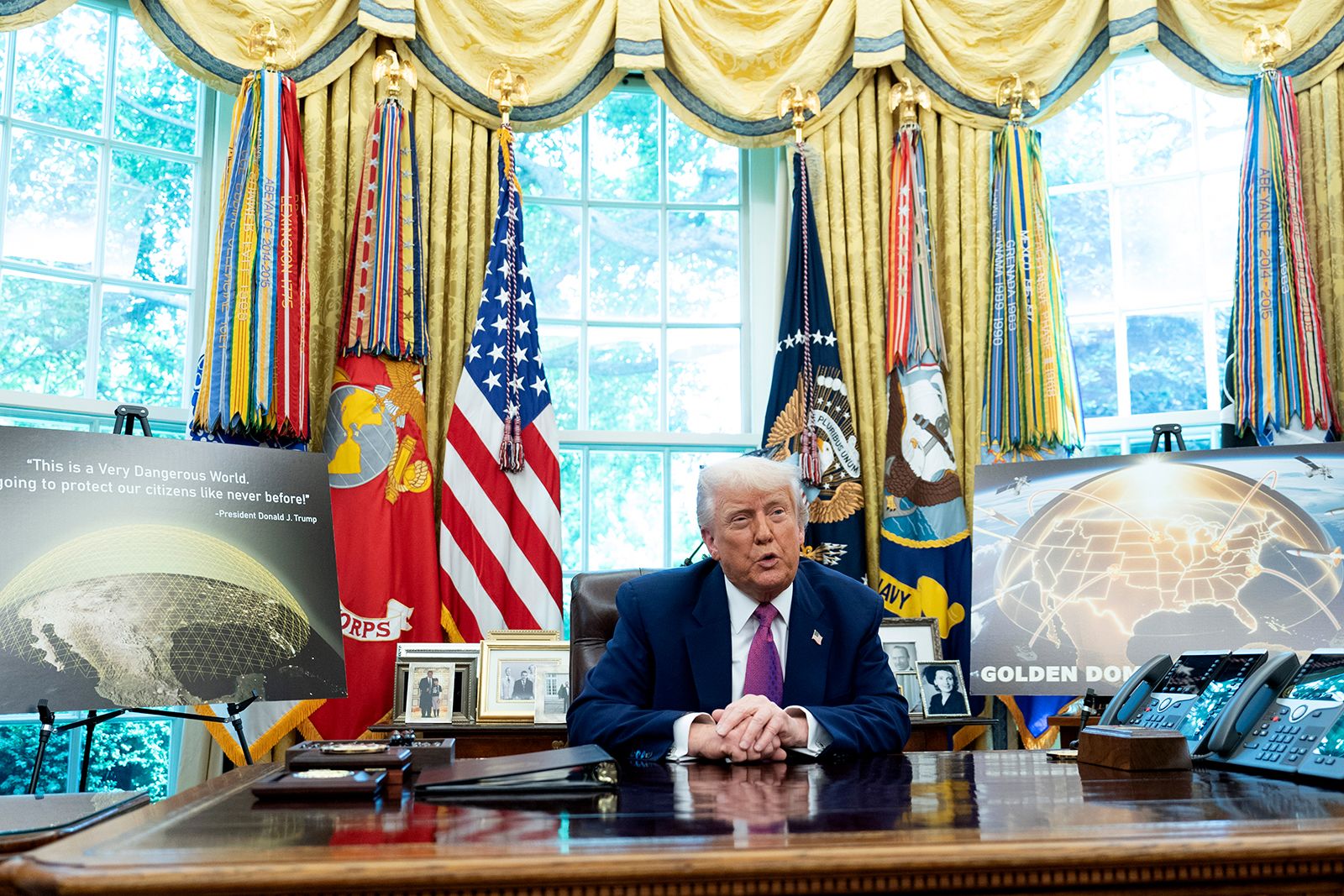Beijing slammed President Trump’s proposed “Golden Dome” missile-defense system as a blatant breach of international norms. “Golden Dome has a strong offensive nature and violates the principle of peaceful use in the Outer Space Treaty,” Chinese Foreign Minister Mao Ning declared on Wednesday. She warned that the project “will heighten the risk of turning space into a war zone and creating a space arms race, and shake the international security and arms control system.”
However, Beijing didn’t stop there. Mao urged Washington, “We urge the U.S. to give up developing and deploying the global anti-missile system.” arguing that U.S. actions threaten the delicate balance of global security.
Beijing’s Call to Halt

In a pointed rebuke, Mao accused the U.S. of an obsessive pursuit of absolute security at the expense of all: “The U.S., by putting itself first, and being obsessed with pursuing absolute security, violates the principle of, and diminishes, the security for all and undermines the global strategic balance and stability.” She added, “China is gravely concerned about this,” and again pressed the White House to abandon the plan “at an early date and take concrete actions to enhance strategic mutual trust between major countries and safeguard global strategic stability.”
Meanwhile, American intelligence officials caution that China and Russia have already deployed offensive space weapons—like anti-satellite capabilities—that could darken U.S. military and communications satellites.
Washington Presses On

Undeterred, President Trump unveiled a sweeping overview of Golden Dome from the White House on Tuesday. He pegged the project’s total cost at $125 billion, with Congress already considering an initial $25 billion to kick-start the effort. Trump even set himself an ambitious finish line: have the system operational before he leaves office.
Russia Weighs In
Not to be outdone, Moscow chimed in with its own spin. Kremlin spokesman Dmitry Peskov suggested that Golden Dome could reopen the door to bilateral arms-control talks. After all, the U.S. walked away from two cornerstone pacts, the Intermediate-Range Nuclear Forces Treaty in 2019 and the Anti-Ballistic Missile Treaty in 2002 citing alleged Russian infractions that Moscow vehemently denies.
“Now that the legal framework in this area has been destroyed, and the validity period has expired, or deliberately, let’s say, a number of documents have ceased to be valid, this base must be recreated both in the interests of our two countries and in the interests of security throughout the planet,” Peskov argued.
The Space Arms Race Heats Up
On Capitol Hill last month, Space Force Vice Chief Gen. B. Chance Saltzman painted a vivid picture of China’s rapid orbital buildup. He noted that Beijing’s “space-based targeting capabilities have grown most impressively,” with hundreds of satellites tracking U.S. assets above the Earth. Saltzman described their progress as “mind-boggling.”
Still, warning bells rang even louder when his counterpart, Vice Chief of Operations Gen. Michael Guetlein, testified that China has been practicing satellite “dogfighting”, maneuvering objects in tight, coordinated formations.

“That’s what we call dogfighting in space,” Guetlein said.
“They are practicing tactics, techniques and procedures to conduct on-orbit operations from one satellite to another.”
With thresholds breached on both sides, the contest for orbital supremacy has moved from cold calculations to bold declarations. Are we edging ever closer to a theater of conflict above our heads? Only time will tell, but for now the Golden Dome debate underscores one thing: space, once the final frontier of peaceful exploration, risks becoming the next great battlefield.



